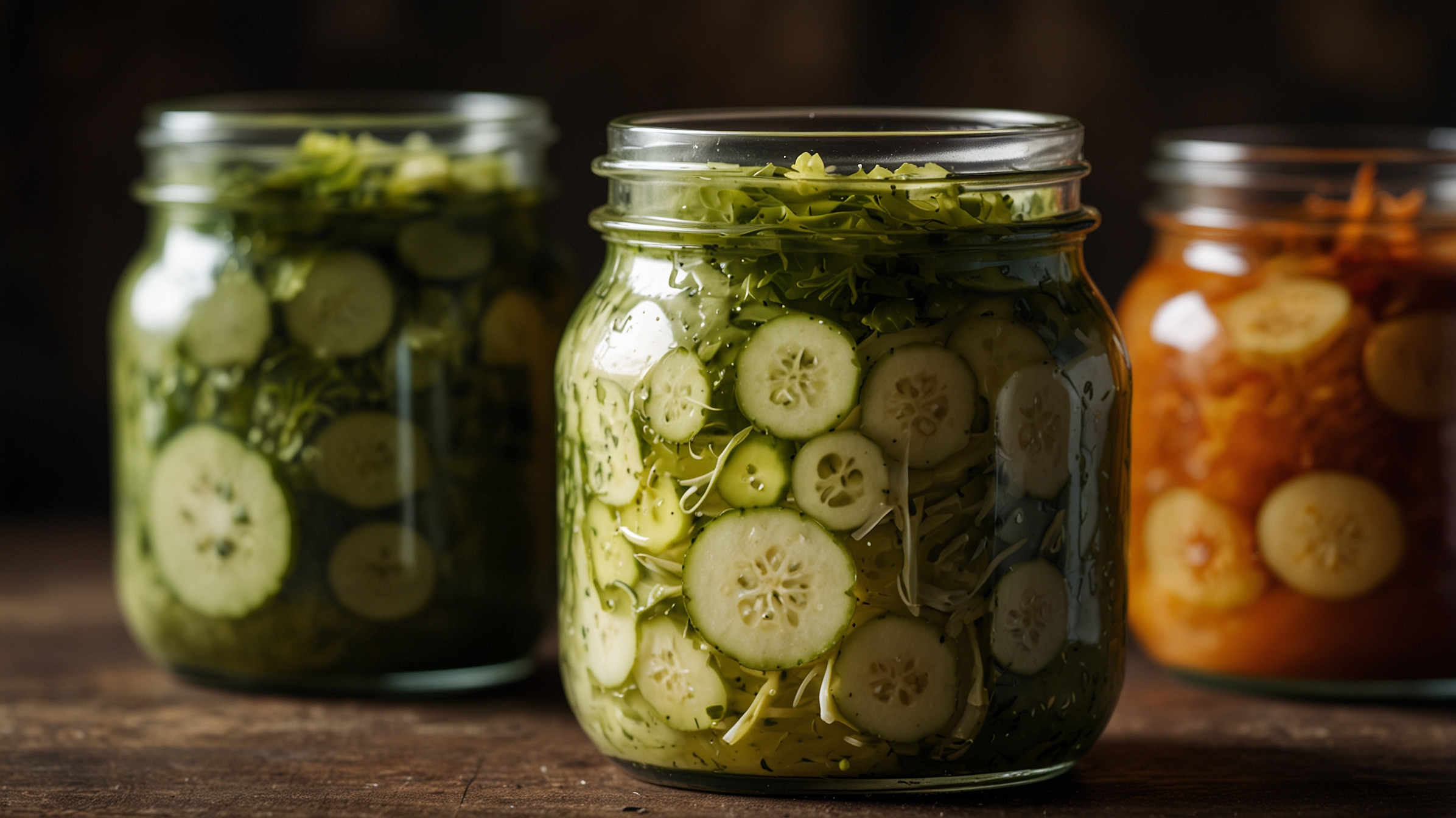From kimchi to kombucha, sauerkraut to sourdough, fermented foods are having a moment. Touted as digestive superheroes and immunity boosters, these tangy staples from global cuisines have surged in popularity in recent years. But are fermented foods truly worth the hype—or are they just the latest nutrition trend?
Let’s break down what fermented foods really are, explore their proven health benefits, and examine whether they deserve a permanent spot on your plate.
What Are Fermented Foods?
Fermentation is a process that uses bacteria, yeast, or other microorganisms to break down sugars and starches in food. This natural transformation not only helps preserve food but also creates beneficial compounds, including probiotics—live bacteria that can promote gut health.
Some common fermented foods include:
- Yogurt
- Kefir
- Kimchi
- Sauerkraut
- Miso
- Tempeh
- Natto
- Sourdough bread
- Pickles (naturally fermented)
- Kombucha
Not all fermented foods contain live probiotics by the time they reach your plate. Some are cooked or pasteurized, which kills the beneficial bacteria. That’s why “live and active cultures” on a label is a key detail to look for.
A Gut Feeling: How Fermented Foods Impact Digestion
The most talked-about benefit of fermented foods is their impact on gut health. Your digestive tract is home to trillions of microbes—collectively known as the gut microbiome—that play a role in digestion, immune function, mood, and even metabolism.
Probiotic-rich fermented foods may help support a diverse and balanced gut microbiome by introducing beneficial bacteria. This, in turn, can help:
- Improve digestion
- Alleviate bloating and constipation
- Strengthen the intestinal barrier
- Reduce symptoms of irritable bowel syndrome (IBS) in some individuals
A 2021 study published in Cell found that a diet high in fermented foods increased microbiome diversity and reduced markers of inflammation—two key indicators of overall gut and immune health.
Beyond the Gut: Systemic Health Benefits
Fermented foods may offer additional health perks beyond digestion:
1. Immune Support
Since roughly 70% of your immune system is located in your gut, a healthy microbiome means a stronger defense system. Certain strains of probiotics have been shown to help modulate immune response and may even reduce the risk of infections.
2. Nutrient Absorption
The fermentation process can boost the bioavailability of certain nutrients. For instance, fermented dairy contains more easily absorbed calcium, B vitamins, and magnesium. Fermented soy products like tempeh and miso can reduce compounds called phytates that block mineral absorption.
3. Mental Well-Being
Emerging research on the gut-brain axis suggests that a balanced microbiome may play a role in regulating mood and reducing anxiety or depressive symptoms. Though still early, some studies indicate that fermented foods could positively influence brain health via this connection.
4. Blood Sugar and Weight Management
Some evidence suggests fermented foods may help improve insulin sensitivity and regulate blood sugar. Their high satiety factor and positive effects on digestion can also support weight management goals.
Common Misconceptions and Cautions
Despite the benefits, fermented foods are not magic bullets. Here are some points to keep in mind:
- Not all fermented foods are probiotic. Many pickled items on supermarket shelves are preserved with vinegar, not fermentation, and contain no live bacteria.
- Some may be high in salt. Foods like kimchi, miso, and sauerkraut can contain significant sodium, so portion control matters.
- Start slow. If you’re not used to fermented foods, introduce them gradually to avoid digestive discomfort or bloating.
- Check the labels. Look for products labeled with “live and active cultures” and minimal added sugars, especially for items like yogurt or kombucha.
Also, individuals with specific medical conditions or on certain medications (like immunosuppressants) should speak to their healthcare provider before significantly increasing fermented food intake.
How to Add Fermented Foods to Your Diet
Adding fermented foods to your daily routine can be simple and enjoyable. Here are some ideas:
- Add a spoonful of sauerkraut or kimchi to grain bowls, eggs, or salads.
- Drink kefir or kombucha as a mid-morning refreshment.
- Use miso paste in soups, dressings, or marinades.
- Add tempeh or natto to stir-fries or plant-based meals.
- Try making overnight oats with probiotic-rich yogurt.
You don’t need to overhaul your entire diet to see potential benefits. Even a few servings per week of diverse fermented foods can make a difference over time.
DIY Fermentation: A Fun (and Affordable) Option
For the adventurous, fermenting at home can be a cost-effective and rewarding way to increase your intake. Homemade sauerkraut, yogurt, or sourdough require minimal ingredients and allow you to control salt and sugar levels. Just be sure to follow proper hygiene and safety protocols to prevent contamination.
The Bottom Line: Worth the Hype?
Yes—with caveats. Fermented foods are not a cure-all, but they offer compelling, research-backed benefits for gut health, immunity, and potentially even mental well-being. When chosen mindfully and consumed as part of a balanced diet, they absolutely earn their place at the wellness table.
Whether you’re a longtime fan or just curious, fermented foods offer a delicious and functional way to support your health—one tangy bite at a time.





